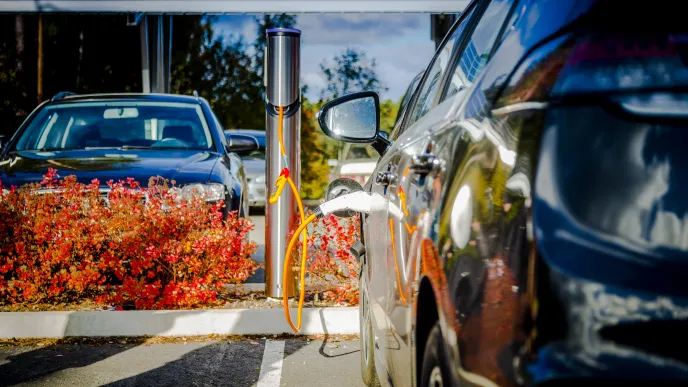The newsletter is your guide to what's happening on LUT campuses and the student community as well as to bachelor's and master's programmes updates and admission instructions. Newsletters will be delivered to your email once a month.
Electrical energy is now more than ever the answer to the world's urgent energy challenges. It is the crucial driver of efficiency and success in the energy transition towards a sustainable, truly industrial and consumer-oriented economy.
Electrical engineering is the largest and most diverse technological field in the world. Studies in the Master's Programme in Renewable Power-to-X Economy are wide-ranging and relevant to industry.
A renewable Power-to-X economy combines solar and hydrogen economies as well as Power-to-X conversion. Students obtain comprehensive knowledge about renewable energy sources, their technologies, and the role of different fossil energy sources on the path towards purely renewable forms of energy. Adjusting the consumption of electricity to the changing production of renewable forms of energy is a considerable challenge. In addition to direct electrification, students learn why hydrogen is a key factor in the large-scale use of renewable energy sources, the storage and transmission of electrical energy, and further processing into, for example, fuels and fertilizers.
Chat with our students
Do you want to know more about studying at LUT, student life, or housing on LUT's campuses?
What will you learn in the programme?
This master's programme provides a holistic view of the field in question – from renewable energy resources to their technologies, economics, sustainability and societal impact.
You will acquire:
- professional skills in applying the theories of electrical engineering to applications of renewable energy production, energy conversion, and storage; you can complement your degree with, for example, energy economics-related studies or business studies;
- knowledge of the ethical aspects of the field and its effects on society; you will be able to critically assess the future prospects of a renewable electricity-based economy;
- teamwork skills; you will learn to work as a member of a team and be able to organise, carry out and lead projects:
- as a graduate, you will be able to work independently and scientifically, acquire information and formulate solutions to complex problems and tasks. The degree programme also prepares you for scientific doctoral studies.
Degree structure and studies
The Master's Programme in Renewable Power-to-X Economy is a two-year programme. It leads to the degree of Master of Science in Technology, M.Sc. (Tech.), which is 120 ECTS credits.
The programme includes core, advanced specialisation, minor and elective studies as well as a master's thesis. Read more in this academic year’s curriculum.
Double degree opportunity for LUT degree students
The programme also offers a possibility for double degree studies. Students admitted to the Master's Programme in Electrical Engineering at LUT may apply to the double degree programme organised in cooperation with Leibniz University Hannover (Germany) and Wroclaw University of Science and Technology (Poland).
Quality of education
The high quality of education is one of the most important principles on which we will not compromise. International programme accreditations ensure the continuous development of our education and the international recognition of the degrees of our graduates. LUT University was one of the world’s top 300 universities in the autumn 2023 THE World University Rankings, which is one of the most highly regarded university ranking systems.
The systematic quality assurance procedures that we have developed over a long period guarantee the high quality of our degree programmes and the strong competence of our graduates in the future labour market. The underpinning elements of our education quality are the contents of our degree programmes, which are based on innovations of scientific research and the needs of the working world, and active student–teacher interaction. We evaluate the quality of our education through several follow-up procedures and feedback channels (e.g., course feedback, graduate feedback, alumni feedback, thesis commissioners’ feedback).
Career prospects
The development of renewable energy plants, energy systems, energy-efficient technology, electric transportation, and electricity markets currently employ master's level graduates in electrical engineering and will continue to do so.
New experts are needed for product development, sales, marketing and management. Moreover, power plants are undergoing changes, as private solar and wind power plants are increasing. In other words, graduates in electrical engineering have ample job opportunities in industry and the public sector.
LUT's electrical engineering training has been the launching pad for a number of important actors and growing companies in the field, some of which are based in Lappeenranta. Job opportunities are available in large international corporations as well as small and medium-sized companies in the field.
You will also have a firm basis for scientific doctoral studies in the field of your specialisation studies.
Contact Admissions Services
The LUT Admissions Services are here to assist you in all matters related to applying to international bachelor's and master's programmes.
For questions about admission criteria or entry requirements, please reach out to us by email: admission@lut.fi.
Chat with our students
Do you want to know more about studying at LUT, student life, or housing on LUT's campuses?
For questions about admission to bachelor's or master's degree studies, please email admission@lut.fi.




